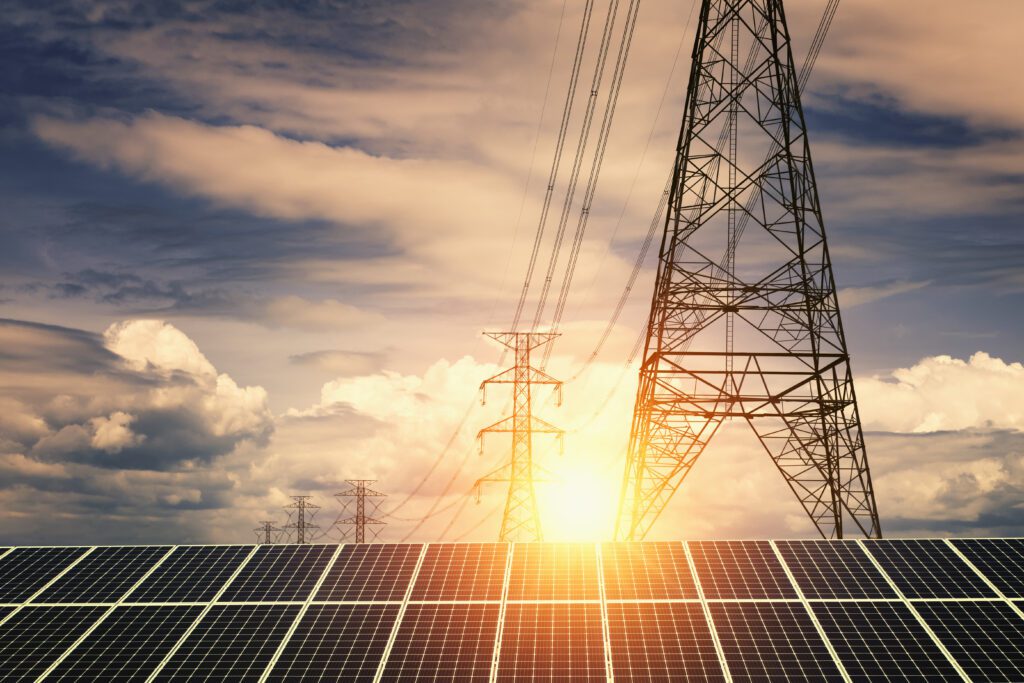Introduction
Following the market’s reaction to the rising costs of compliance with the requirements under the initial Guidelines for Solar Photovoltaic Installation for Self-Consumption in Peninsular Malaysia issued on 1 January 2025 (see our Legal Update on this), the Energy Commission (“EC“) has recently published the revised Guidelines for Solar Photovoltaic Installation for Self-Consumption in Peninsular Malaysia (“Updated Guidelines“) on 27 March 2025.
This update highlights the key changes introduced by the Updated Guidelines.
Exemption from the Requirement of BESS
Before the Updated Guidelines came into effect, a Non-Domestic Consumer (i.e. any consumer other than a Domestic Consumer[1]) with solar PV installation of more than 72kWp was required to install a battery energy storage system (“BESS“) with full capacity of at least one hour rating. The only exemption was for solar photovoltaic (“PV“) systems that were installed or in the process of being installing before 1 January 2025.
Following the Updated Guidelines, in addition to the exemption mentioned above, the installation of a BESS shall only be required after 31 December 2025, provided that:
- the installation of the solar PV system is completed and the requirements as stated in Form G and Form H in the First Schedule of the Electricity Regulations 1994 at the alternating current section of the installation are fulfilled by 31 December 2025; and
- the application for licensing of the installation of the solar PV system is submitted to the EC by 31 December 2025.
New Exemption for Higher Education Institutions
In addition to the above, the Updated Guidelines also introduced a specific exemption for higher education institutions which are registered with the Ministry of Higher Education. Such institutions installing more than 1MWp solar PV installation are exempted from standby charges and BESS installation requirements.
Increased Threshold for Standby Charge
Prior to the Updated Guidelines coming into effect, a monthly standby charge of RM14/kWp was imposed on all non-domestic solar PV installations with an installation capacity of more than 72kWp which are constructed after 31 December 2024.
In the Updated Guidelines, the EC has raised the threshold of the capacity of the solar PV installation for which the standby charge will be imposed. The imposition of charges is now only applicable to non-domestic installations with an installation capacity of 1MWp and above. The standby charge has also been reduced to RM12/kWp, effective 27 March 2025.
Additional Requirement Prior to Solar PV Installation
Under the Updated Guidelines, the EC has imposed an additional requirement for the owner or occupier of the premises to submit a form in such manner as determined by the EC of his intention to install a solar PV system prior to any such installation in his premises.
Conclusion
The revisions introduced in the Updated Guidelines are certainly welcome by the industry and consumers as many were taken aback by the immediate imposition of the mandatory requirement to have BESS and the imposition of standby charge of RM14/kWp for non-domestic installations with an installation capacity of more than 72kWp, which significantly increased the costs of installing and using solar PV systems for self-consumption.
With the introduction of the transition period until 31 December 2025 and the rise in the threshold for the imposition of the standby charge, these changes are undoubtedly beneficial and would increase interest in consumers looking for to install solar PV systems for self-consumption. However, interested consumers should ensure that they act quickly in order to enjoy the exemption from the requirement of BESS.
Should you require further information or any advice on the above or any other matters pertaining to projects, energy and infrastructure, please feel free to reach out to any member of our team listed here.
__________________________________
[1] means any consumer occupying a private dwelling, which is not used as hotel, boarding house or used for the purpose of carrying out any form of business, trade or professional activities or services.
Disclaimer
Rajah & Tann Asia is a network of member firms with local legal practices in Cambodia, Indonesia, Lao PDR, Malaysia, Myanmar, the Philippines, Singapore, Thailand and Vietnam. Our Asian network also includes our regional office in China as well as regional desks focused on Brunei, Japan and South Asia. Member firms are independently constituted and regulated in accordance with relevant local requirements.
The contents of this publication are owned by Rajah & Tann Asia together with each of its member firms and are subject to all relevant protection (including but not limited to copyright protection) under the laws of each of the countries where the member firm operates and, through international treaties, other countries. No part of this publication may be reproduced, licensed, sold, published, transmitted, modified, adapted, publicly displayed, broadcast (including storage in any medium by electronic means whether or not transiently for any purpose save as permitted herein) without the prior written permission of Rajah & Tann Asia or its respective member firms.
Please note also that whilst the information in this publication is correct to the best of our knowledge and belief at the time of writing, it is only intended to provide a general guide to the subject matter and should not be treated as legal advice or a substitute for specific professional advice for any particular course of action as such information may not suit your specific business and operational requirements. You should seek legal advice for your specific situation. In addition, the information in this publication does not create any relationship, whether legally binding or otherwise. Rajah & Tann Asia and its member firms do not accept, and fully disclaim, responsibility for any loss or damage which may result from accessing or relying on the information in this publication.









